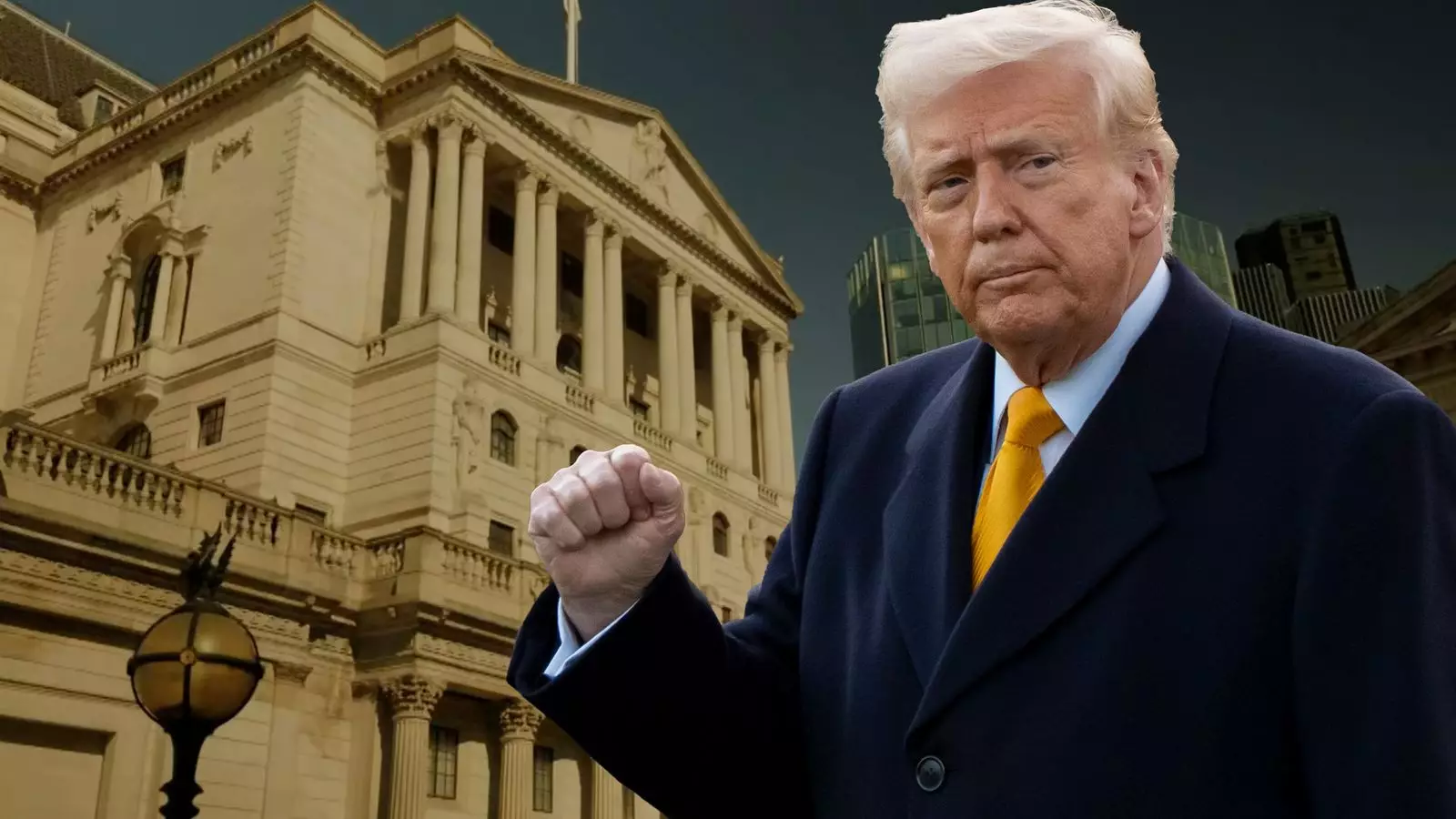In a financial landscape increasingly dominated by uncertainty, the Bank of England stands at a crossroads. With market indicators signaling a definitive 100% chance of an interest rate cut next month, the implications of Donald Trump’s persistent trade wars loom ominously over the UK economy. Initially, analysts assessed an 82% likelihood of a reduction in rates from 4.5% to 4.25% as early as May 8. However, once Bank of England committee member Megan Greene expressed her views on inflation, the atmosphere shifted. It emphasizes how rapidly sentiment fluctuates in response to governmental and geopolitical events, leaving markets scrambling to reassess their positions.
Greene’s perspective is that the tariffs imposed by the U.S. are less likely to drive inflation up in the UK, and instead might present disinflationary risks. This notion embodies a glimmer of optimism; however, it is worth noting that optimism in the realm of economics can often be a precarious position. The argument hinges on the premise that the UK’s decision to refrain from imposing retaliatory tariffs could pivot the nation into a more favorable market—one replete with cheaper imports from Europe and Asia. While Ms. Greene makes a compelling case, relying on such economic dynamics assumes a delicate balance that may not necessarily hold.
The Tug-of-War between Inflation and Economic Growth
Yet, even amidst the unfolding narrative, the Bank of England’s forecast remains clouded by compounding inflationary pressures—a phenomenon fueled by climbing energy prices and looming tax hikes on businesses. This potential uptick in inflation presents a chilling challenge for policymakers. If rising prices limit the Bank of England’s ability to support growth via interest rate cuts, is the institution relegated to a position of impotence in the face of a looming economic downturn? The question hangs heavily in the air, inviting speculation and debate.
Financial markets forecast three additional rate cuts by the end of the year, revealing a stark divergence in monetary policy strategies across the pond. The European Central Bank has been proactive, cutting rates with alacrity in response to languid economic strings—the UK, conversely, finds itself tethered to a more passive approach. This disparity is particularly alarming when one considers the interconnectedness of global economies. As we witness varying policy responses based on domestic conditions, the once-clear boundaries of economic influence become increasingly murky.
The Political Dimensions of Economic Policy
A complex interplay of political considerations magnifies the uncertainty. President Trump’s tirade against Federal Reserve Chairman Jay Powell raises serious questions about the influence of political figures on monetary policy. His demands for immediate rate cuts underscore a dangerous precedent—prompting concerns about the independence of central banking institutions. As Trump lashes out at Powell, one must ponder the broader implications for financial markets and investor confidence. If the Fed’s decisions are informed by executive pressure rather than economic indicators, what does this imply for the Bank of England, with its own unique challenges?
Chancellor Rachel Reeves’s forthcoming discussions regarding a trade agreement that potentially nullifies tariffs with her U.S. counterpart might offer a solution, but based on recent trends, it feels more like a fleeting hope than a guaranteed outcome. The world finds itself engulfed in a struggle for trade supremacy, one that could very well define the future state of international economics.
As the Bank of England navigates these treacherous waters, the urgency of flexible and decisive policymaking resonates louder than ever. The stakes are not merely academic; they directly impact the livelihoods of citizens. Faced with global challenges that threaten to upend established economic order, the Bank must find a path that reconciles the dual demands of growth and inflation management. The direction taken in the coming months will shape not just the future of the UK economy, but could reverberate through the corridors of global financial power.

Leave a Reply